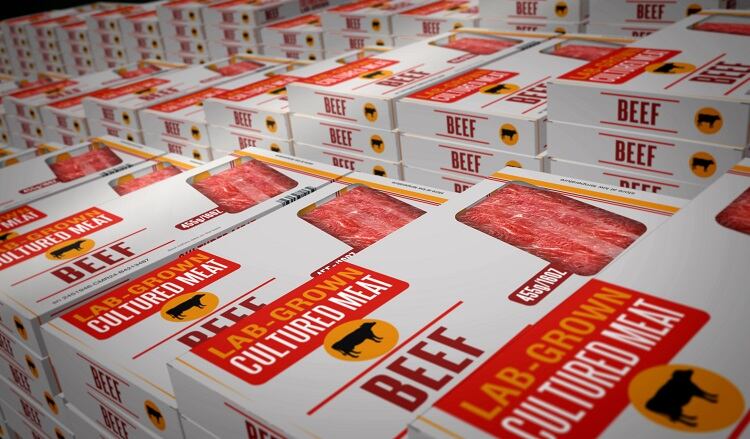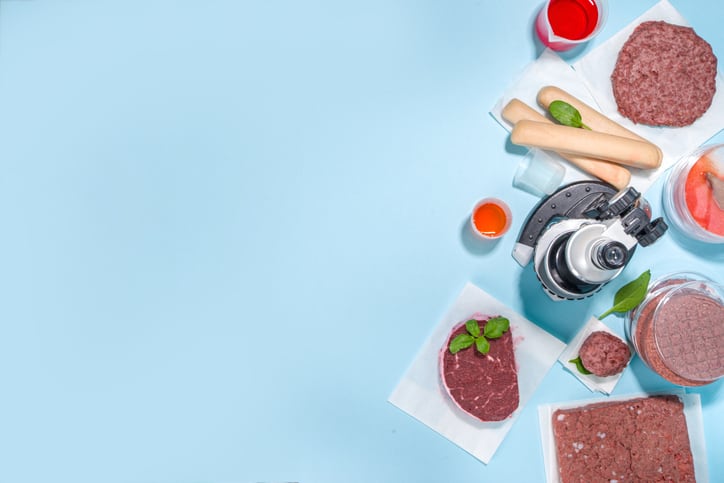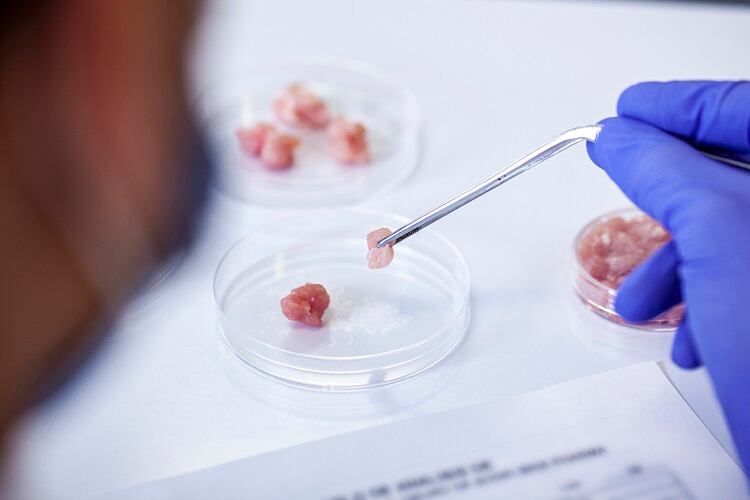Regulators in the US have approved the sale of two cultivated meat products, meaning consumers should be able to order it at selected restaurants within weeks.
The US Department of Agriculture has issued grants of inspection to UPSIDE Foods and GOOD Meat – meaning their production facilities satisfy regulatory standards, and their products can now be sold in the US. Both companies’ products already successfully completed the US Food and Drug Administration’s pre-market safety evaluation.
European governments and authorities must now act to make sure the environmental, public health and economic benefits of this food are felt in Europe, claimed the international non-profit the Good Food Institute.
“This is the strongest evidence yet that Europe is falling behind as the rest of the world accelerates to deliver cultivated meat as part of a more sustainable food system,” said Alice Ravenscroft, head of policy at the Good Food Institute Europe.
“American consumers will soon be able to taste real chicken made without farming animals – so European companies are beginning to look across the Atlantic to take their products to market.
“Cultivated meat has the potential to slash emissions, boost our food security and expand consumer choice. The EU must step up its investment in the sector and ensure regulatory processes are robust and transparent, or risk missing out on this crucial climate solution and economic opportunity.”
ProVeg International echoed the calls for more product approvals. CEO Jasmijn de Boo said: “The Dutch government awarded €60 million last year to support the creation of a national cellular-agriculture ecosystem as part of the country’s National Growth Fund. Singapore led the way with approvals, giving the go-ahead for cultivated meat in 2020.
“Other countries should be looking at similar investment commitments whilst cultivated meat is still in its infancy.”
Proponents of cultivated (also called lab-grown, cell-grown of cultured) meat claim this new way of production could reduce the climate impact of meat. But lab-grown meat is not inherently better for the environment, claimed a recent pre-print study out of the University of California, Davis.
Of this, Cellular Agriculture Europe called it an attempt to spread misinformation, by ignoring important caveats and a range of scenarios. “The fundamental assumptions in this preprint report do not reflect actual industry plans or sourcing practices for cell feed,” it said, adding the UC Davis study has not been through a peer-review, so the assumptions and conclusions may change. It cites the findings of a formally peer-reviewed study published in the International Journal of Life Cycle Assessments which found that cultivated meat produced at scale using renewable energy could reduce the carbon footprint by 92%, land use by 90%, and water use by 66% compared to conventional beef production.
Europe’s regulatory process
Before a cultivated meat product can be sold in Europe, it needs to receive pre-market approval by regulators in a process governed by the Novel Foods Regulation. Once EU regulators approve a cultivated meat product, it can be sold across all 27 EU countries. The approval process will include a thorough and evidence-based assessment of the safety and nutritional value of cultivated meat and is estimated to take at least 18 months.
The UK government has a similar regulatory framework in place for the assessment and authorisation of cultivated meat as a novel food, led by the UK Food Standards Agency. The UK is currently mulling rule changes to allow faster cultivated meat and animal-free dairy approvals.
Cell-based meat proponents further stress that cultivated meat is exactly the same as the beef, pork, chicken and seafood people enjoy eating today – but made in cultivators (like the fermenters used for brewing beer) instead of farming animals.
Bruce Friedrich, president of the Good Food Institute, said yesterday: “Today's historic announcement — two American companies earning regulatory approval to bring cultivated meat to US consumers — marks a pivotal moment in food and agriculture. Consumers are now one giant step closer to enjoying the meat they love without compromise.
“Global demand for meat is projected to double by 2050. Breakthroughs like cultivated meat enable the world to diversify protein production while slashing emissions, increasing food security, reducing risks to public health, and freeing up lands and waters for restoration and recovery. Given the stakes, a transition toward cultivated meat and other alternative proteins is as essential as the global transition to renewable energy. And just like renewable energy, massive public investment is key to ensuring these new sustainable foods can scale, create future-focused jobs, and benefit everyone.”
While it may be a while before cultivated chicken can be found in US supermarkets, UPSIDE Foods and GOOD Meat have received orders from Michelin-starred restaurants in San Francisco and a Washington DC. “This approval will fundamentally change how meat makes it to our table," said UPSIDE founder and CEO Uma Valeti.
Andrew Noyes from GOOD Meat said: “Launching our cultivated chicken in a restaurant setting is the perfect way to introduce consumers to real meat that’s made in a whole new way.”
But critics have suggested the cell-based meat sector may struggle for financial viability and experience similar challenges currently plaguing the much-hyped alternative protein sector.
Director of consultancy New Nutrition Business Julian Mellentin said in a tweet: “US regulator allows lab-meat makers to race towards consumer rejection and market failure sooner than they hoped! More finance and tech bros about to re-learn a hard lesson.”





